Drug Addiction Treatment in Lexington
Lexington drug rehab for in-patient and out-patient drug detox and alcohol treatment. Addiction and chemical dependency recovery program near Lexington MA. Drug and Alcohol Rehabilitation techniques used in our Middlesex rehab and detox centers near Lexington. Programs for drug and alcohol abuse that include inpatient and outpatient recovery for addiction are explained as well as the benefits and drawbacks of both. Many health insurance providers will pay for alcohol and drug rehab. Call us to find out what options are available for you.
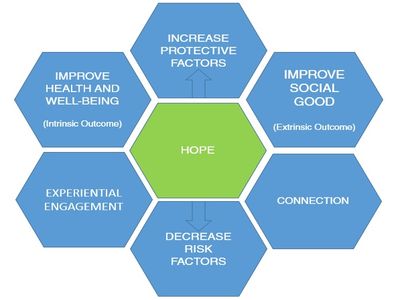
Mental Dependency – What Is Psychological Reliance?
The term psychology is generally suggested to refer to behavioral processes that associate to the feelings or the mind. The term emotional reliance is normally indicated to explain the psychological and mental procedures that are associated with the development of, and also healing from, a compound use condition or drug dependency.
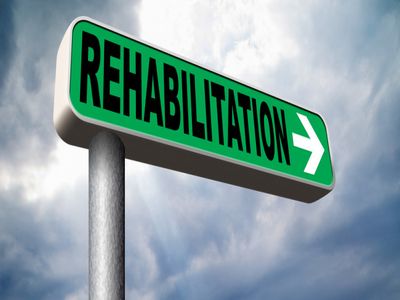
Compounds related to Mental Dependence
The basic observation here is that all materials of abuse are connected with both mental as well as physical facets of dependency; however, lots of resources separate the facets of the growth of a compound usage disorder as well as the withdrawal process into compounds that are related to withdrawal signs that are primarily mental in nature. Normally, these substances include:
A lot of stimulants, including drug as well as Ritalin
Many hallucinogenic drugs, such as LSD
Cannabis items (although there is placing proof that there could be a substantial physical procedure of withdrawal that takes place in persistent users of marijuana products).
Lots of inhalant products.
Several psychotropic drugs, such as antidepressant medications.
Reward of mental dependency
One extremely important difference that could be made regarding the distinction in between medicines that are considered to result in physical versus mental dependence is that the withdrawal process from some of the drugs that are taken into consideration to be strong prospects for physical reliance, such as alcohol, benzodiazepines, and barbiturates, could cause the development of potentially fatal seizures. This condition does not generally happen with withdrawal from opiate medicines, which are also thought about to be incredibly physically addictive. The healing process for individuals who have created material usage disorders to these materials should be purely checked by a medical professional or psychiatrist that specializes in addiction medicine to identify any possible seizure task as well as right away address it.
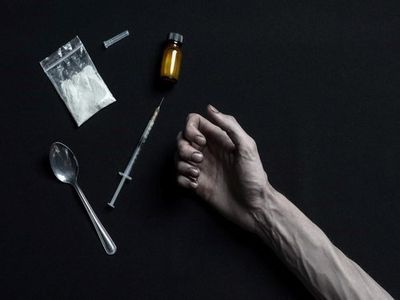
Options for Rehab in Lexington
Medicines
Numerous drugs have actually been discovered to be reliable in treating dependency to opioids, alcohol, or nicotine in adults, although none of these medications have actually been approved by the FDA to deal with teens. Only preliminary proof exists for the performance and security of these drugs in individuals under 18, and also there is no proof on the neurobiological effect of these medicines on the establishing brain. However, in spite of the loved one lack of evidence, some health care suppliers do use drugs “off-label” when treating adolescents (especially older teenagers) who are addicted to opioids, nicotine, or (much less generally) alcohol. More recent compounds continuously be studied for perhaps treating material use disorders in adults and teens, however none apart from those detailed here have revealed conclusive outcomes.
Note that there are currently no FDA-approved drugs to treat addiction to cannabis, drug, or methamphetamine in any kind of age group.
Buprenorphine minimizes or eliminates opioid withdrawal signs and symptoms, including medication food cravings, without generating the “high” or hazardous negative effects of heroin and also various other opioids. It does this by both turning on as well as obstructing opioid receptors in the brain (i.e., it is what is known as a partial opioid agonist).

Methadone additionally stops withdrawal signs and symptoms and also reduces food craving in opioid-addicted people by triggering opioid receptors in the brain (i.e., a full opioid agonist). It has a lengthy history of usage in treatment of opioid reliance in adults as well as is available in specifically certified methadone therapy programs. In pick instances and in some States, opioid-dependent teenagers in between the ages of 16 and 18 might be eligible for methadone therapy.
Residential Drug Rehabilitation in Lexington
A research study in the journal Dependency reveals that individuals that receive help with recuperation from dependency are more probable to remain in recuperation for longer durations than those who do not obtain care. Sixty-two percent of those who had specialist assistance in treating their addiction stayed in healing for 3 years after treatment, compared with only 43 percent of those that didn’t obtain treatment. In addition, 57 percent of those who made it three years were still devoid of the compound after a total of 16 years. This reveals that getting expert therapy is important to reaching the best result.
Residential Lexington drug rehab in particular is frequently a lot more useful since it requires that the person remain in therapy for the amount of time essential to affect change.
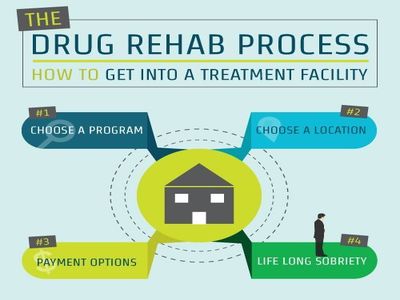
In the NIDA short article it is stated that a vital element of drug addiction therapy is staying in therapy long enough to complete the various parts of the program, since this enables individuals to arise with the highest degree of confidence in their newly learned abilities as well as tools for staying in healing. Due to this, each of the parts of a premium therapy program functions best when it is developed in order to help individuals make it through the entire treatment process.
Residential rehabilitation supplies 24-hour care in a setting where the emphasis is aiding people achieve as well as preserve recuperation from drug addiction. Because of this, these programs are able to offer a breadth of solutions that are more probable in order to help customers create capabilities and tools to remain in recovery well after leaving the program. These consist of:
Medically sustained detox and also withdrawal, if needed.
Clinically sustained upkeep care, if required.
Private treatments, such as Cognitive Behavioral Therapy.
Family members or pairs therapy.
Building skills as well as tools that are needed forever message treatment.
Follow-up treatment after the defined program ends.
Outpatient Treatment
Outpatient rehabilitation permits clients to live at home and also take part in therapy at an outpatient center during the daytime. This kind of program affords individuals much more liberty in therapy, offering customers the ability to keep a work as well as stay up to date with everyday duties at home. Those simply starting outpatient treatment might need daily sessions with a therapist or scientific team, while those more along in healing (or with less extreme addictions) might be successful with part-time sessions once or twice each week.
Outpatient programs typically last anywhere from one to three months, as this is the home window of time where those in recuperation are most susceptible to relapse. The size of time a client invests in outpatient treatment depends on their progression in recovery, which considers their mental stability and also physical health.
An outpatient drug rehab program offers alcohol and drug treatment sessions that can be arranged during various times throughout the week. This timetable allows individuals to continue with their regular responsibilities as well as proceed living in your home, but they are required to explore treatment at their allotted times for counseling as well as medication.
Recovery
Recovery is an objective of alcohol treatment, and also recovery-oriented systems of care are being created to sustain that goal. People who are “in healing” know just what it suggests to them and also exactly how essential it remains in their lives. They need no official interpretation, but also for the general public and also those who study, evaluate, as well as create policies about addiction, healing is a concept that could in some cases appear vague.
Basically, recovery is a facility as well as vibrant procedure incorporating all the favorable benefits to physical, psychological as well as social health that can happen when individuals with a dependency to alcohol or medicines, or their family members, obtain the help they require.
Therapy
Counseling is a vital part of substance abuse treatment for many people. Cognitive behavior modification, family therapy, as well as other treatment methods could aid people recuperating from opioid addiction keep tidy.
12 Step Programs
The 12-Step philosophy spearheaded by Twelve step programs is made use of by about 74 percent of treatment facilities. The basic property of this model is that people can assist one another achieve as well as preserve abstinence from substances of abuse, yet that recovery could not happen unless people with dependencies surrender to a higher power. The 12-Step activity can be a force permanently for lots of people, however some struggle with exactly what they take a solid spiritual element of the program. Several dependency treatment programs offer options to 12-Step method for those that choose a more nonreligious foundation for treatment.
SMART Healing
SMART Recovery is an abstinence-based, not-for-profit organization with a reasonable self-help program for people having troubles with alcohol consumption and utilizing. It includes numerous suggestions and also techniques to help you alter your life from one that is self-destructive and also miserable to one that is useful as well as enjoyable. SMART Recuperation is not a spin-off of Twelve step programs. No person will certainly label you an “alcoholic”, an “addict” or “infected” neither “helpless”, and also if you do not rely on a religious beliefs or spirituality, that’s fine, also. We show common sense self-help procedures developed to empower you to abstain as well as to create a more positive way of life. When you succeed at following our approach, you could graduate from the program, or you may remain around to assist others.
Client-centered strategies
In client-centered drug abuse treatment, you can help determined features of your drug addiction treatment plan including:
- The rate at which you advance.
- The length of your remain.
- The goals of your program.
Along with professional personnel the addict establishes specifically just what they intend to get out of their stay. Each week, you and your personal specialist will certainly review your medication addiction therapy as well as make a decision whether or not you are reaching your goals, falling short or exceeding them as well as change your treatment strategy appropriately. The partnering is actually vital here- your goals are your roadmap with therapy.
Psychoanalysis
The psychoanalysis sight recommends dependency is generally a problem of self-regulation. Dependency is referred to as a protective method to prevent feeling of vulnerability or powerlessness. Substance abuse is a futile attempt to make up for internal emptiness without success. The addict aims to make up via habit forming actions for uncomfortable subjective states of low self-esteem, uncertainties as well as stress and anxiety. Using drugs provides a sensation of acceptance and also sensation of short-term sure of oneself. Addict replaces an imaginary world, where he is in complete control, for the real life, where he feels useless and also uncontrollable. Repeated use medications to obtain relief ends up being a way of life. Alleviation is short-term, yet in the lasting drug use ends up being an end in itself. The addiction trouble prevents the customer from recognizing concerning her distress, along with the advancement of psychological ability to self-soothe.
Relapse avoidance
An influential cognitive-behavioral technique to dependency recuperation as well as treatment has actually been Alan Marlatt’s (1985) Regression Prevention method. Marlatt explains four psycho-social processes pertinent to the addiction and also relapse procedures: self-efficacy, end result expectancy, attributions of causality, and also decision-making procedures. Self-efficacy refers to one’s capacity to deal capably as well as properly with risky, relapse-provoking scenarios. End result expectations describe an individual’s assumptions regarding the psychoactive effects of a habit forming substance. Attributions of causality refer to an individual’s pattern of ideas that regression to substance abuse is an outcome of internal, or instead exterior, transient causes (e.g., permitting oneself to earn exceptions when confronted with what are evaluated to be unusual conditions). Decision-making procedures are linked in the regression procedure. Material usage is the result of numerous decisions whose cumulative effects lead to usage of the intoxicant. Furthermore, Marlatt stresses some choices- described as apparently irrelevant decisions- could appear irrelevant to relapse however could really have downstream effects that place the individual in a risky scenario.
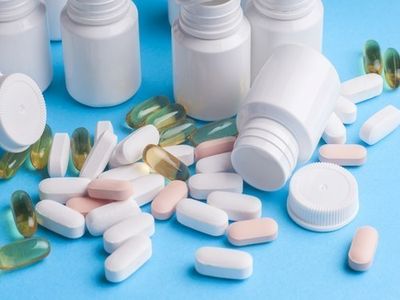
: As a result of hefty rush-hour traffic, a recovering alcoholic might choose one mid-day to exit the freeway and travel on side roads. This will certainly cause the production of a risky scenario when he recognizes he is inadvertently driving by his old preferred bar. If this individual has the ability to use effective coping methods, such as distracting himself from his cravings by turning on his favorite songs, after that he will avoid the regression danger (PATH 1) and heighten his efficiency for future abstaining. If, however, he does not have dealing mechanisms- as an example, he might begin ruminating on his desires (COURSE 2)- then his efficiency for abstaining will certainly decrease, his expectations of favorable end results will raise, and also he may experience a lapse- a separated go back to substance drunkenness. So doing results in just what Marlatt describes as the Abstaining Violation Impact, defined by regret for having actually gotten inebriated and also low efficiency for future abstaining in similar tempting situations. This is a dangerous path, Marlatt recommends, to full-on relapse.
Addiction and Dual Diagnosis Connection
When a patient is diagnosed with both a chemical abuse condition and also a mental health and wellness issue, after that it is called a Dual Medical diagnosis. Usual psychological wellness problems that have the tendency to happen alongside dependency include:
- Anxiousness conditions.
- Modest to severe anxiety.
- Individuality conditions.
- Mood problems.
- Schizophrenia.
As they come to be extra and more frustrating, the person may attempt to “treat” those symptoms by making use of different medications. Conversely, a person dealing with an eating condition could attempt to further their weight loss attempts by abusing stimulant medicines like cocaine or crystal meth.
In other instances, the medication addiction comes first as well as because of persistent drug abuse, psychological health concerns can develop later on because of that substance abuse modifies brain function over time.
Sober Living Residence
Sober living houses are group residences for those recovering from an addiction. The majority of these homes are independently possessed, although some group residences are had by businesses and also could even be had by charity companies. Homes are generally located in silent areas in order to help guarantee a tranquil environment for people in early healing.
These sorts of residences are various from rehab centers; rehabilitation centers generally provide an even more extensive recuperation experience as well as provide locals much less flexibility. People who reside in sober living centers could generally come and go as they please as long as they adhere to certain rules. Sober living houses may call for residents to be house by a particular time or to go to work during the day. Residents could also undergo routine drug testing to demonstrate ongoing soberness.
